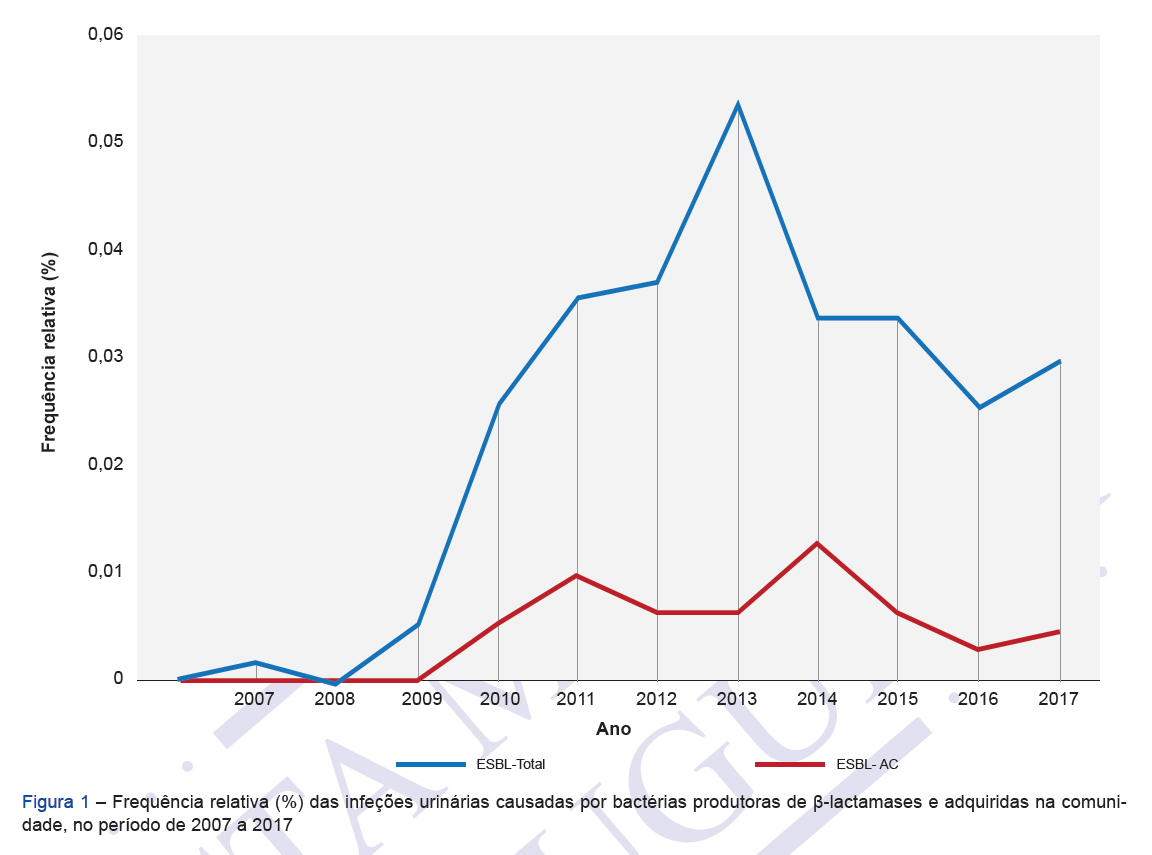SOCIAL MEDIA
Portuguese Medical Association's Scientific Journal

Introduction: The emergence of β-lactamases producing bacteria is a problem worldwide, with increasing importance in community-acquired infections, especially in urinary tract infections. Data regarding the use of non-carbapenem antimicrobials in these infections are scarce. The aim of this study was to analyse the treatment and outcome of urinary tract infections caused by community-acquired β-lactamase-producing bacteria in children.
Material and Methods: Retrospective study performed in a level III paediatric hospital, between June 2007 and December 2017. All children with β-lactamase-producing Enterobacteriaceae identified in aseptically collected urine culture were included.
Results: A total of 175 urinary infections caused by β-lactamases producing bacteria were diagnosed, 34 (19%) were community-cquired:
25 Escherichia coli (74%), 4 Klebsiella pneumoniae (12%), 4 Proteus mirabilis (12%) and 1 Proteus vulgaris (3%). In 30 (88%) cases, it was the first urinary infection. After identification of the microorganism and antimicrobial susceptibility, 33 (97%) children were re-evaluated and 24 (71%) had a repeat urine culture, which was positive in three (13%). In six (18%) cases, antibiotic treatment was modified. Four (12%) children had another UTI in the following month. In 30 (88%) children, imaging was carried out, with no nephrourological malformations detected.
Discussion: In the last decade, about 20% of urinary infections caused by β-lactamase-producing Enterobacteriaceae were community-acquired with a relatively stable number of cases over the years. No nephro-urological malformations were identified in these children.
Conclusion: Although the number of cases is small, the clinical and microbiological outcomes showed that most were successfully treated with non-carbapenem antibiotics, with low recurrence of new episodes of urinary tract infections.